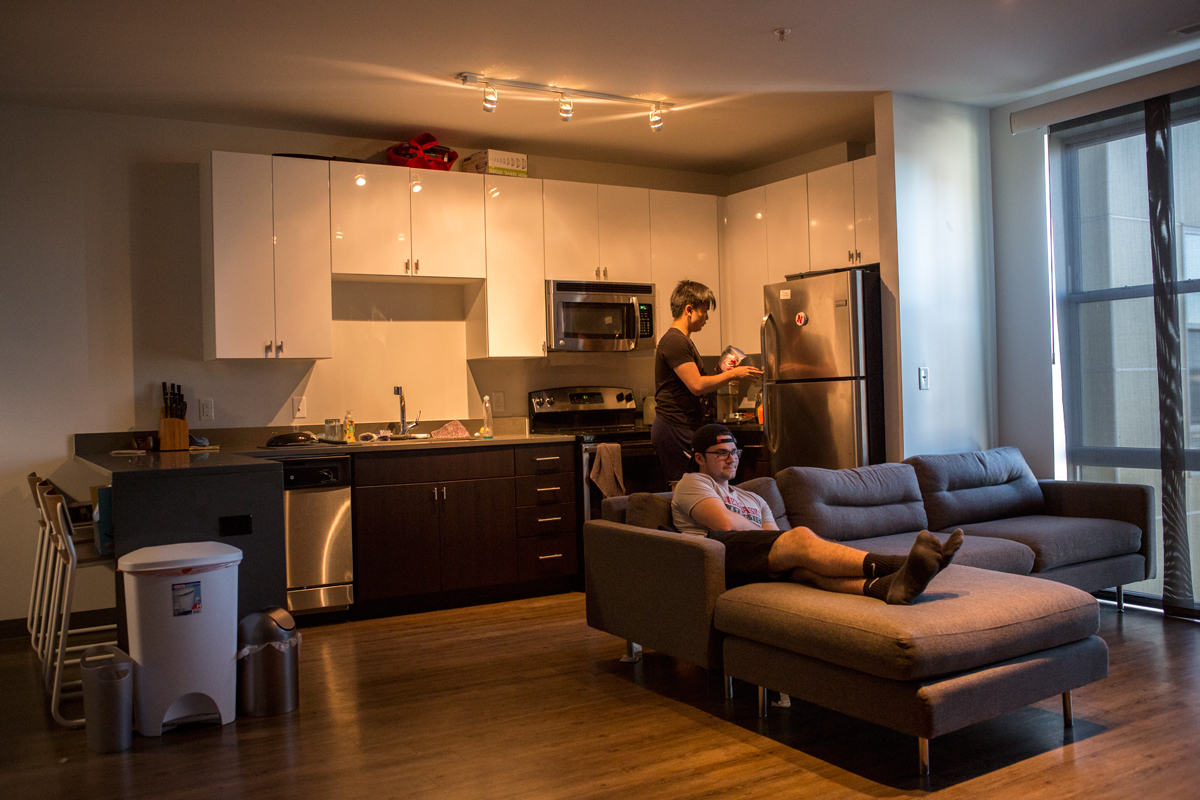

Sophomore biology major Joanna Castro walked through the front doors of Prime Place feeling confident that she made the right choice. As the door to her two-bedroom apartment shut behind her, she thought this calm atmosphere was what she needed to thrive.
This was the moment it felt like home.
“The living space in Prime Place is a great improvement compared to the small dorms,” Castro said. “The dorms were not my ideal environment because I prefer to live in a place that’s quiet. I also liked that I could make it feel like home and do whatever I wanted with the space.”
In the last four years, several off-campus apartment complexes with an emphasis on student living have become a home for students like Castro. This trend develops at a time when the student population is expanding without plans to increase on-campus student housing.
- Addison Krebs
However it hasn’t had a significant effect on university housing.
According to the University of Nebraska-Lincoln Fact Book for 2015-2016, 34.7 percent of students live on campus. That’s about a 4.2 percent decrease from the 2014 fall semester.
“At this point, it has not had much of an impact on the university,” said Vice Chancellor for Student Affairs Juan Franco. “Since freshmen are required to live on campus, our housing numbers will always be good.”
Even with the closing of Cather and Pound halls, Franco said the university will continue to have adequate space for the students. UNL will also be opening a new residence hall on East Campus and will have several single rooms that can easily be converted to doubles.
But a lack of space is not the main concern for students moving off campus. A growing concern is affordability.
“Living off campus was the best option for the financial situation I am in right now,” said Addison Krebs, a sophomore fisheries and wildlife major at UNL and a resident in the The Willows apartment complex at 1800 Knox Street. “I get to pay rent monthly instead of having to pay everything at once, like at the dorms.”
Apartment-style living on UNL’s campus costs $7,864 per academic year for two bedrooms and one bathroom, such as in The Village or Courtyards. When divided up among 8 months of the academic year, that costs students about $983 per month.
A two-bedroom, two-bathroom apartment at Prime Place would cost $499 per month in comparison. At Aspen Heights, a two bedroom, two bathroom starts at $669 per renter. A two bedroom and one bathroom at 8 | N Lofts ranges from $725 to $735 a month.
With everything added up, the difference between on-campus and off-campus living could be over $400 per month.
“Not only did I really like the financial aspect, but the location was great too,” Krebs said. “[The Willows apartment complex] is only a 10-minute bus ride to and from campus.”
Krebs said he believes the biggest downfall in the location is having to plan his day around the bus schedule because he does not have a car in Lincoln.
“It is also inconvenient when I have gaps in between my classes,” Krebs said. “When I have a two-hour break it is not worth going home for 15 minutes and then taking the bus straight back to campus.”
But even though Krebs has to plan his day around the bus schedule, he said he believes being able to get off campus sometimes is worth it.
Senior secondary math education major Sarah Houston is a resident of the Tanglewood apartment complex, located on 301 N 44th St., and said she prefers it to on-campus living, especially considering the cheaper rent and location.
“I really like that I am able to have my own space and not have to worry about finding a quiet place when I choose to have time to myself,” Houston said. “Sometimes it’s great to get off of campus and just be able to relax.”
While many students agree that experiencing dorm life is essential to the traditional college experience, living off campus can help further develop students’ skills outside the classroom.
“I think there are more positives to it than negatives,” Krebs said. “It’s a good life experience and really helps you grow as a person.”